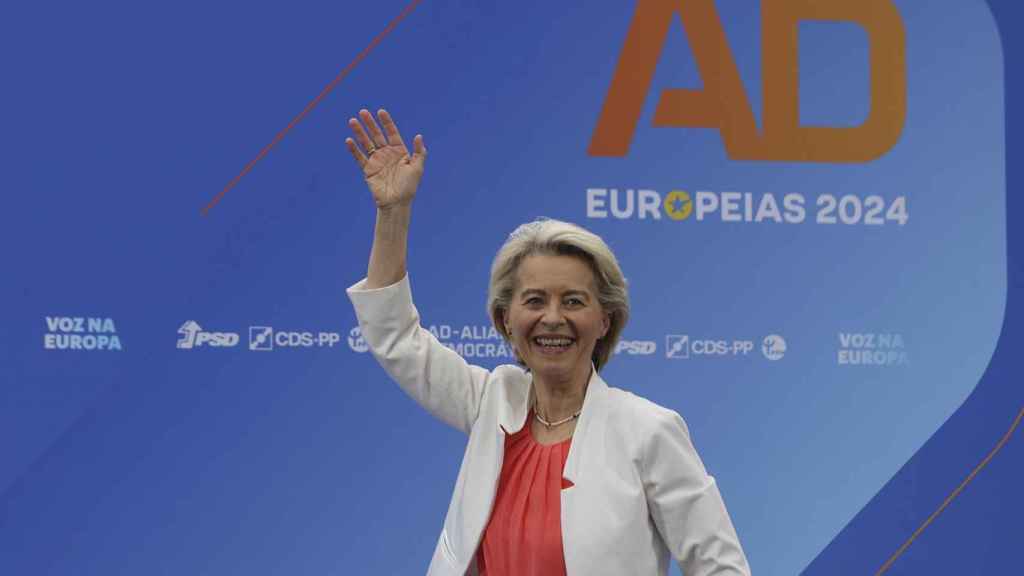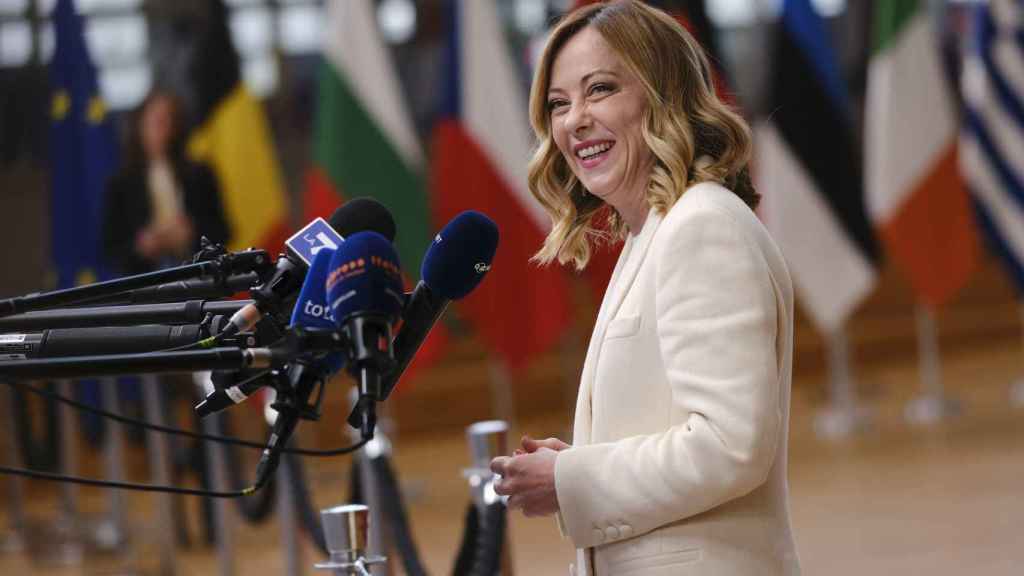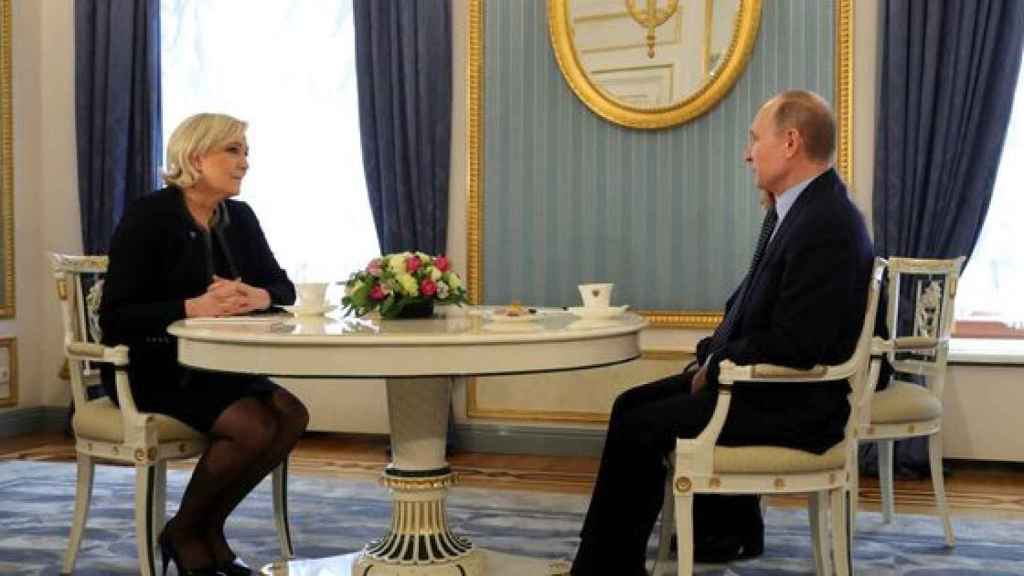Three powerful women are risking their political future (and that of the European Union) in the elections to the European Parliament that conclude this Sunday in the 27 member states. The triangle formed by the German Ursula von der Leyenthe Italian Giorgia Melonand the french Marine Le Pen It perfectly embodies the dilemmas that are being resolved in these elections, marked by a strong advance of the radical right and the extreme right throughout the continent. The backdrop is particularly challenging for the EU: two simultaneous wars in the neighborhood (Ukraine and Gaza), the risk of a return of Donald Trump and his isolationism in the White House, and an increasingly aggressive
The EU ‘democratic festival’ began on Thursday in the Netherlands and closes this Sunday at 11:00 p.m. with the closing of the last polling stations in Italy, from which point the results will begin to be published. A total of 360 million people Throughout the EU, 720 MEPs are called to the polls to elect (15 more than in 2019), which are distributed among Member States based on their population. Germany is the country that sends the most deputies to Strasbourg (96) and Cyprus, Luxembourg and Malta the least (6). Spain elects 61. European elections are considered ‘second order’ and participation tends to be low: it stood at 50.7% in 2019.
All the polls predict a sharp turn to the right in the European Parliament for the next legislature. He European People’s Party (in which Von der Leyen is active) will win the elections easily (173 seats), ahead of the European Socialists (143 seats), according to the poll of polls prepared by Politico. The two majority forces maintain their positions compared to the previous 2019 elections. Liberals collapse of Renew (up to 75 seats, compared to the current 102) and especially the Greens (41 seats, compared to the current 72).
[Elecciones europeas: guía para entender lo que está en juego el 9-J en Bruselas]
The big news is the rise of radical right forceswhich could be done with up to 25% of the seats in the new Parliament. These parties have topped the polls in nine Member States (including France, Italy, Austria, Hungary, the Netherlands and Poland) and appear in second or third place in nine other countries. In their internal struggle, the winner is the group of European Conservatives and Reformists (ECR)led by Meloni and in which Vox and the Poles from Law and Justice also participate: Political allocates them 76 seats.
The second far-right group in the European Parliament, Identity and Democracywhose boss is Marine Le Pen, would be left with 67 MEPs, after having expelled Alternative for Germany for considering this party excessively radical. In Identity and Democracy there are also the League of Matteo Salvinithe PPV of Geert Wilders or the Austrian FPÖ. Finally, the polls predict another victory for Viktor Orbán in Hungary, who is now among the Non-Registered but could make a move after 9-J.
The plenary session of the European Parliament in Strasbourg
Although in the EU it is the national governments – and not the European Parliament – that monopolize a greater share of power and set the political direction, this shift to the right will complicate the approval of new green standards and the fight against climate change, as was already seen in the final stretch of the legislature. And it could translate into a additional tightening of immigration policy, the other priority that generates an absolute consensus between forces that are otherwise very divided among themselves. The worst scenario would be that the ultras achieve a blocking minority capable of paralyzing the European Parliament.
Ursula von der Leyen
The one that could lose the most this 9-J is Ursula von der Leyen. If at the beginning of the year he seemed to have everything in his favor to repeat a second term As president of the Commission, in recent weeks she has made notable setbacks that call into question her continuity. Von der Leyen first needs European leaders to appoint her (by a qualified majority) at the summit on June 27 and 28. She and she must then be ratified by an absolute majority (361 votes) in the new European Chamber, in a (secret) vote that will probably be held on July 18.

Ursula von der Leyen this Thursday at an event in Porto, Portugal.
“I am sure that I have the support of many leadersthey know me and they know my experience,” Von der Leyen said Thursday at a campaign event in Porto. So far, only Viktor Orbán has announced that he will vote against him. But the French Emmanuel Macron He has doubts about the German’s decision to present herself this time as an EPP candidate, which in her opinion compromises her arbitration role. In fact, it has been leaked in the European press that Macron prefers the former president of the ECB, Mario Draghi.
If she overcomes this first obstacle, Von der Leyen will need to build a “broad coalition” in the European Parliament. Popular, socialists and liberals (the ‘grand coalition’ that has supported him during his first term) would in principle total 389 votes. But Party discipline does not prevail in Strasbourg and many defections, so its absolute majority is at risk. In 2019, the German was confirmed by a margin of just 9 votes.
That is what explains the Von der Leyen’s approach to Meloni, since he wants to have the votes of the Brothers of Italy (up to 25 seats according to polls) as a safety net. An alliance that, on the other hand, could cost him the support of socialists and liberals, who maintain that they will not accept pacts with the extreme right.
Giorgia Meloni
The Italian Prime Minister is the big winner of 9-J even before the polls open. From being plagued by her radicalism and anti-Europeanism, Meloni has now become the kingmaker from Brussels. The leader who has the most possible moves, with the ability to decide the direction of the next legislature. Von der Leyen woos her to join the grand coalition. Macron also wants to recruit her for his plan to overthrow the German and put Mario Draghi in her place. Marine Le Pen offers him to join forces in a unique far-right supergroup.

The Italian Prime Minister, Giorgia Meloni, talks to the press upon her arrival at the European Council last April
Since coming to power, Meloni has behaved in Brussels like a pragmatic leader. He joined the consensus on central reforms such as the Migration and Asylum Pact, the new fiscal rules or the sanctions against Russia and the shipment of weapons to Ukraine, distancing himself from other ultra governments such as those of Hungary or previously Poland. “She is clearly pro-European,” Von der Leyen says of her. At the same time, the Italian Prime Minister remains faithful to its alliances with Vox and other europhobic forces.
This was demonstrated at the conclave of far-right parties organized in Madrid on May 19. In a combative speech, Meloni drew the European Union as “a bureaucratic giant that aims to regulate all aspects of our lives” and that wants to “force its citizens to welcome masses of irregular immigrants against her will” instead of protecting her external borders. Faced with offers from some and others, the Italian prime minister allows herself to be loved but keeps her options open.
Marine Le Pen
Although she will clearly win the elections with France, the president of the National Group is the figure with the least room for maneuver after 9-J. Her main objective is not Strasbourg either, but continue whitening your image in the face of the 2027 presidential elections.
His purpose of forming a single extreme right super group in the European Parliament – whose first objective would be to overthrow the re-election of Von der Leyen, who has already said that I would never collaborate with her because of her ties to Vladimir Putin– has little sign of prospering due to the disputes and personal squabbles that divide these forces.

Marine Le Pen and Vladimir Putin in Moscow in an image from 2017.
Reuters
For Meloni, being in the same group as Le Pen would mean antagonizing most European leaders., including Macron, Von der Leyen and Scholz. He would also give up his role as a bridge between the European Conservatives and Reformists and the European People’s Party. A dilemma that will begin to be resolved starting this Monday, June 10.














Add Comment